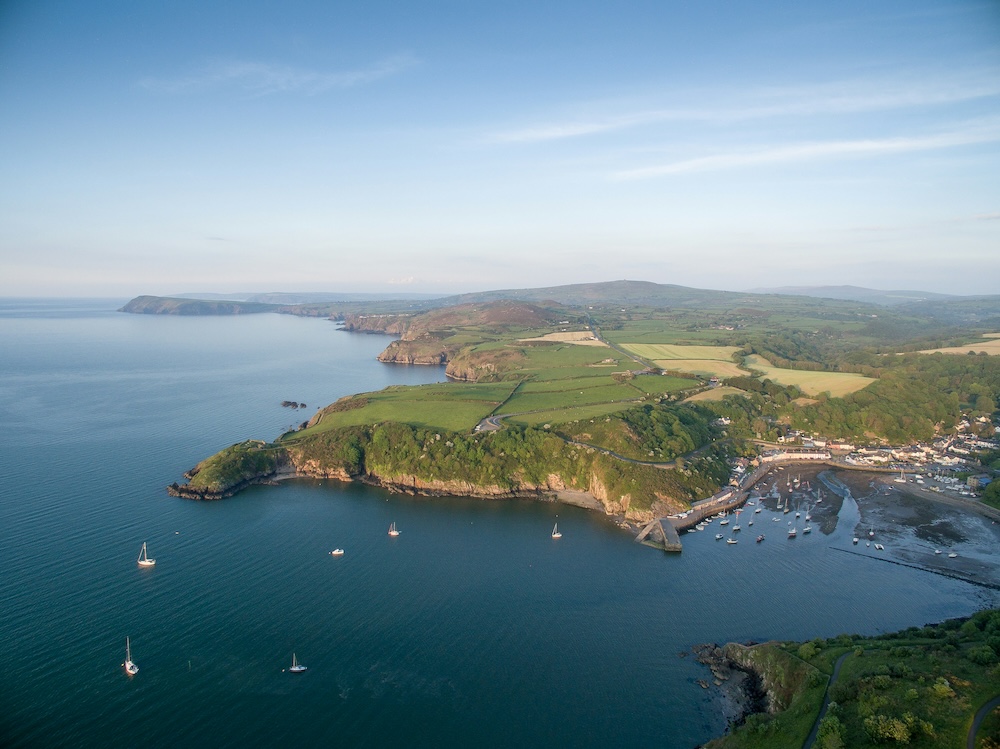Geraint Talfan Davies on a man who recorded the first cut of our history
On several occasions I tried to encourage Patrick Hannan to join the IWA. His replies were increasingly firm – after all, he had heard it all before. “Davies,” he would say, “I ain’t joining. I don’t do that sort of thing.” I should have known better, because deep down I knew his resistance was not just a matter of temperament but of policy.
Following the death of his father at the age of nine, he spent less than happy schooldays at Cowbridge Grammar School which he dubbed ‘a Woolworth’s version of Harrow’. This, and arguments at Aberystwyth University over his Irish Catholic background, helped him discover “my life’s vocation as a lance corporal in the awkward squad”. He later confessed that he always found “being in a majority uncomfortable and ill-fitting”. But beyond mere temperament, he prized his own independence as absolutely essential to his trade.
He was a professional spectator in a Wales that, he thought, had too many cheerleaders and campaigners, and not enough detached scrutineers. I was about to call him a devil’s advocate, but Patrick would not have taken a brief from anyone, and certainly not from someone as partisan as the devil. He relished the warmth of Welsh life, but was suspicious of its cosiness. He was not going to be beholden to anyone, or to have his independence compromised by even the most token affiliation. That is something I should have respected.
I first worked with him at the Western Mail in September 1966 only a few weeks before the Aberfan disaster. Over more than forty years he charted Wales’s progress through events that, industrially and politically, were to change it utterly. His work described that progress, but the shape of his career also told us much about the changing media. As with so many of us, there was an inevitability about his move from newspapers to television. Soon after he went to BBC Wales in 1970 he became its industrial and political correspondent, the very title reflecting the centrality of industrial strife in the politics of the time. Strikes were a daily occurrence, the big ones often ending in beer and sandwiches at No 10.
His was a daily voice on radio and a nightly presence on our screens. More than anyone else he told the people of Wales their own story. He did so from the palace of Westminster, from picket lines and miners’ conferences, most often standing before steelworks or pits – usually Nantgarw colliery, not because Nantgarw was especially troublesome, but because, as he pointed out, its pit head gear was the nearest scenic prop to the BBC.
Inside two decades that world was gone, the end of Wales as we had known it. Industry and politics became separated in the world of reporting and in the public mind. In politics, too, there was cataclysmic change. Patrick had seen the early days of the Welsh Office, had been at Aberfan, had searched and failed to find the battalions of the Free Wales Army, and was there for the referenda in 1979 and in 1997. In his own words, he had started by reporting on politics in Wales, and finished by reporting Welsh politics. Along the way he gave all sides an equally hard time.
In the middle of the process – and before the last cataclysmic miners’ strike – he left the staff of the BBC for the less certain life of a freelance. The change also meant that he spread his wings in directions that brought his knowledge and love of history and of his own patch more obviously into play. His reporting had always been infused, even if sometimes invisibly, by his knowledge and love of history. After all, he had been taught at Aberystwyth by both Gwyn Alf Williams and Richard Cobb. In numerous documentaries and five books he sought to make sense of the events and people that he had reported, and with a colour and wit that broadcast news can rarely accommodate.
He was a serious man, but full of humour and fun. He was keen to educate, but just as keen to entertain. He found earnestness tedious and was endlessly amused by our foibles and our myth making. The paucity of outlets in Wales for serious print journalism forced him to channel his gifts as a writer into five books that attempted to make sense of the events he had described. It was a period of insightful and witty reflection. In The Welsh Illusion he commented like many others on the role of women in the final miners’s strike, but he went further than others in commenting, too, on the fact that this produced some discomfort in the male world of coal. It was, he said, “as if the Beverley sisters had turned up in the college of cardinals”.
Nothing fazed him, and for good reason. The breadth of his reading was immense – history, politics, biography and diaries, novels and poetry, coupled with an equally wide knowledge of film, and opera from Verdi through Gilbert and Sullivan to Flanders and Swann. This and an Irish obsession with language (he recently signed up for an Irish passport) as well as his prodigious memory armed him for any and every occasion, not least Round Britain Quiz that he and his colleague Peter Stead won five times in ten years.
He was not only a diligent and meticulous great reporter, but also a wise, entertaining and wholly necessary bridge between past and present. To have him as the truest of friends was a privilege beyond measure.





